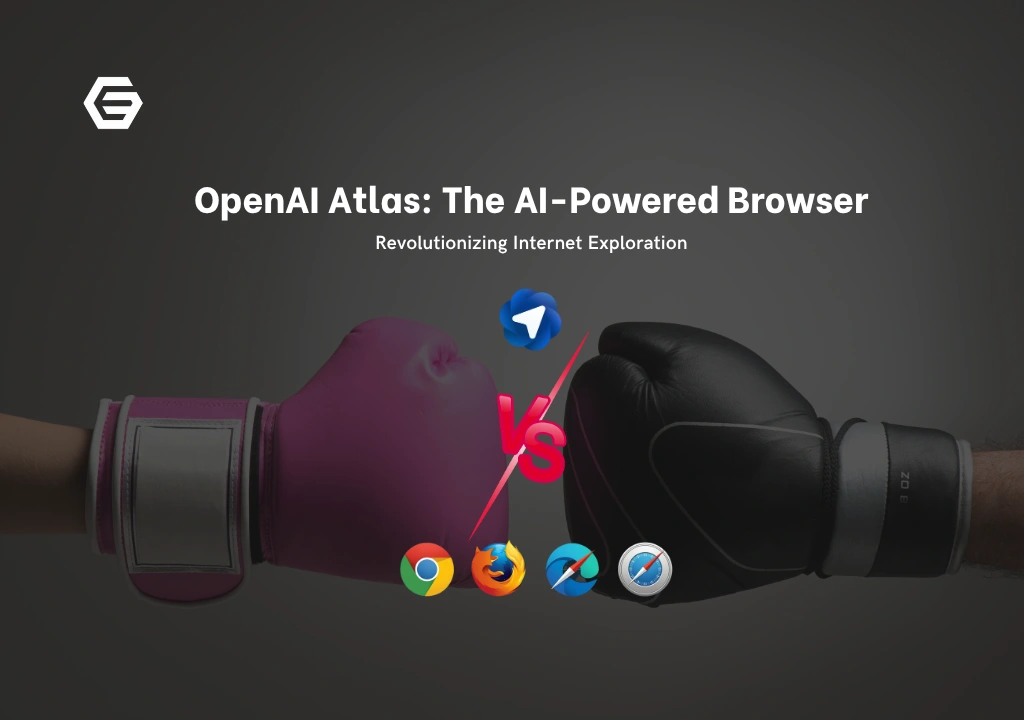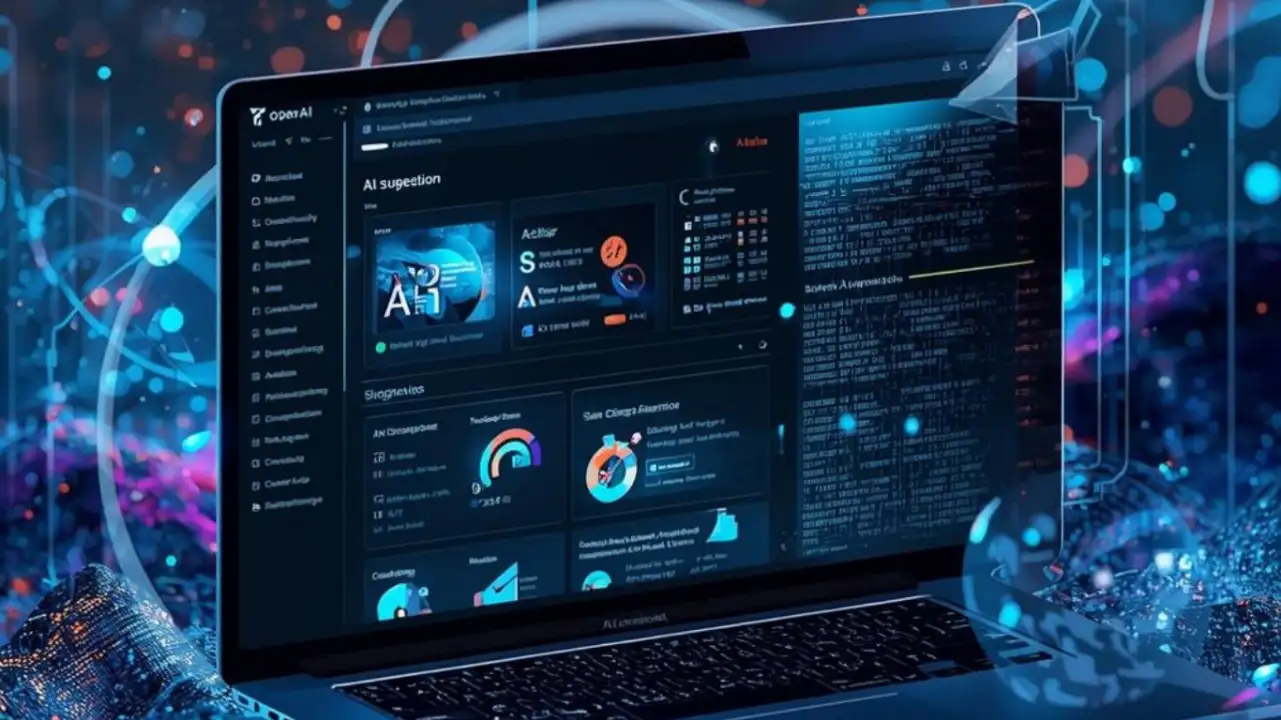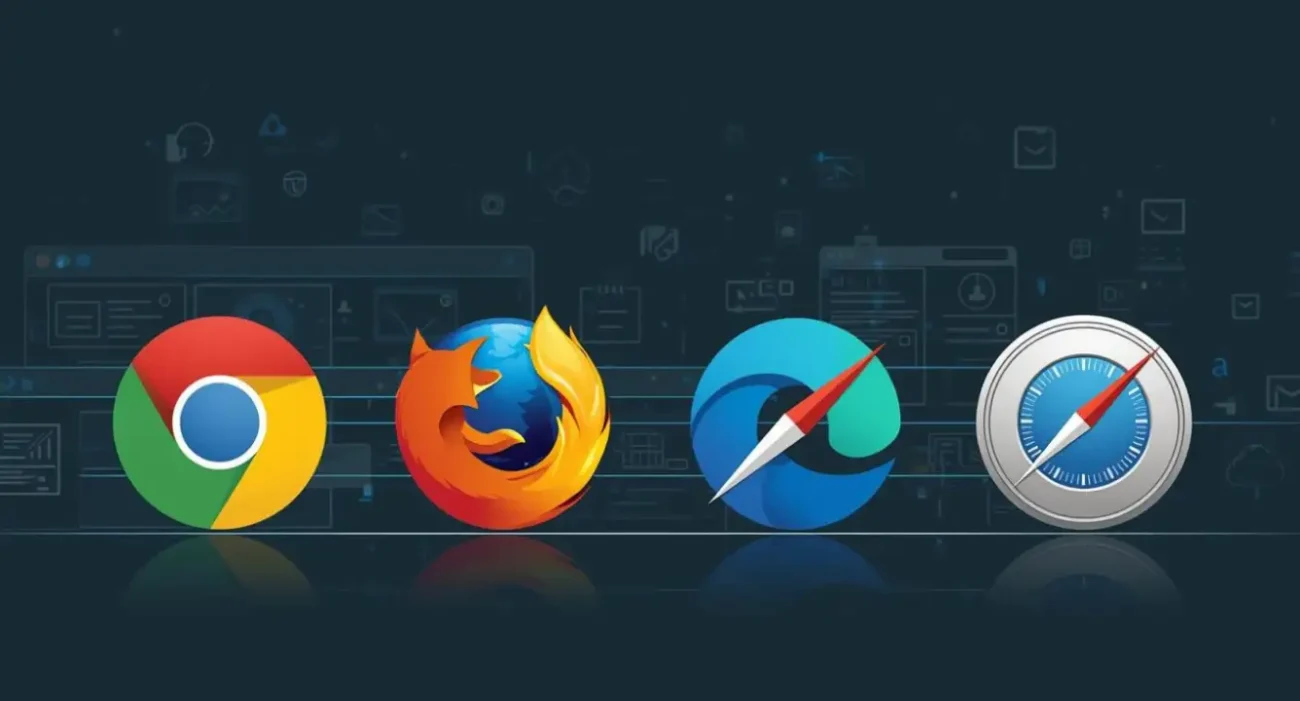OpenAI Atlas: The AI-Powered Browser Revolution

Introduction:
The internet has always been a vast ocean of information, yet navigating it efficiently has remained a challenge. Enter OpenAI Atlas, a next-generation AI-powered browser designed to change how we explore the web. Unlike traditional browsers that simply display websites, Atlas integrates advanced artificial intelligence to assist, guide, and optimize the browsing experience.
Atlas is not only for tech enthusiasts but also for students, professionals, educators, and casual users. Its interface is intuitive, its AI capabilities are powerful, and its privacy measures are robust, making it suitable for all users aged 12 to 60+.
What Makes OpenAI Atlas Different from Traditional Browsers?
Traditional browsers like Chrome, Firefox, and Edge have focused on speed, security, and extension support. However, they lack intelligent understanding of the user’s intent. Atlas changes that by embedding OpenAI’s AI directly into the browsing experience.
Here’s how Atlas stands out:
- Contextual Understanding: Atlas can read and understand webpage content in real-time. This allows it to summarize long articles, suggest related content, and answer questions directly on the page.
- Interactive AI Assistance: It acts like a virtual co-pilot, helping with tasks like drafting emails, generating content ideas, or finding research references.
- Multi-Age Accessibility: Its clean, simple interface ensures even beginners and older users can use it effectively, while students and professionals can leverage advanced features.
- Privacy and Security: Atlas emphasizes secure browsing, ensuring AI-powered assistance doesn’t compromise user data.

Key Features of OpenAI Atlas
1. AI-Powered Search
The search function in Atlas goes beyond traditional keyword matching. It understands your intent, extracts the most relevant information, and even presents it as summaries or highlights. For example, a student looking for “impact of climate change on agriculture” will get a concise explanation, key points, and references, all on the same page.
2. Smart Summarization
Atlas can automatically summarize long articles, reports, or research papers, making it ideal for students, professionals, and lifelong learners. Instead of reading entire 10-page documents, users can access condensed insights in seconds.
3. AI-Assisted Content Creation
Whether you are drafting a blog post, preparing a school project, or creating a business proposal, Atlas offers real-time AI suggestions. It can generate outlines, recommend headings, improve grammar, and even suggest visual aids.
4. Multi-Device Synchronization
Atlas works across desktop, mobile, and tablet, ensuring continuity in your browsing experience. You can start research on your laptop and continue seamlessly on your smartphone without losing context.
5. Privacy and Security Enhancements
Atlas uses AI without compromising personal privacy. It does not track unnecessary user data and provides secure AI-assisted browsing, making it safe for all age groups.
6. Personalized Learning and Recommendations
Atlas learns your browsing habits and can suggest relevant articles, tutorials, or resources, improving productivity and making learning more efficient. This is especially useful for students and professionals constantly seeking knowledge in their fields.
Why OpenAI Atlas is Ideal for Different Age Groups
12–18 Years (Students & Teenagers):
Atlas helps students with homework, research projects, and exam preparation by summarizing content, explaining difficult topics, and recommending trusted sources. The interface is simple and visually engaging, making it easy for teenagers to adopt.
19–35 Years (Young Professionals & College Students):
This age group benefits from Atlas’s productivity tools. For instance, young professionals can draft emails, prepare reports, or research competitors more efficiently. College students can quickly access academic resources, AI-powered insights, and practical examples for projects.
36–60+ Years (Experienced Professionals & Lifelong Learners):
Atlas simplifies internet usage for older adults who may not be tech-savvy. It provides direct answers, highlights important information, and reduces the need to navigate multiple tabs or complex websites. Lifelong learners can also benefit from tailored content recommendations.

Practical Use Cases of Atlas
Research and Education
Students and educators can rely on Atlas for quick topic summaries, citation assistance, and content recommendations. For example, a high school student researching renewable energy can get structured summaries with links to authoritative sources in minutes.
Business and Professional Productivity
Atlas can assist professionals by generating reports, presentation drafts, and email templates. Marketing professionals can get AI-assisted keyword suggestions, trend analysis, and content strategies, all within the browser.
Content Creation and Blogging
For bloggers and content creators, Atlas can generate topic ideas, improve writing style, and summarize complex concepts for readers. This reduces the time spent drafting content and allows creators to focus on creativity.
Everyday Browsing
Casual users can use Atlas to find information quickly, get news summaries, and navigate websites efficiently. The AI assistant can even help with tasks like booking appointments, comparing products, or understanding technical documentation.
Atlas vs. Traditional Browsers: Real-World Use Case Comparison
| Use Case / Feature | Google Chrome | Mozilla Firefox | Microsoft Edge | Safari | OpenAI Atlas |
|---|---|---|---|---|---|
| Quick Research & Summaries | Requires manual reading and multiple tabs | Similar manual reading; add-ons may help | Basic search; add-ons needed | Manual research; limited AI support | Summarizes articles instantly, highlights key points, provides references |
| Homework & Study Assistance | No AI assistance; manual searches | Manual only | Limited AI via extensions | No built-in AI | AI explains concepts, generates study notes, offers relevant examples |
| Content Creation (Blogs, Reports) | Only basic text editing; external tools needed | Same as Chrome | External tools required | Limited | Drafts outlines, suggests improvements, generates headings, and checks grammar |
| Productivity & Professional Use | Tab management, bookmarks | Tab management, add-ons | Integration with Microsoft Office | Tab management | AI co-pilot for emails, reports, scheduling, research insights |
| Learning & Skill Development | Manual search; dependent on external resources | Same | Limited | Limited | Personalized learning recommendations, topic suggestions, interactive guidance |
| Time Efficiency | Moderate; depends on user effort | Moderate | Moderate | Moderate | Saves hours with AI-powered summaries, suggestions, and task automation |
| Multi-Device Continuity | Chrome sync across devices | Firefox sync | Edge sync | Safari sync | Seamless AI experience across desktop, mobile, and tablet |
| Privacy & Security | Basic; extensions may help | Strong privacy; requires configuration | Microsoft tracking concerns | Standard Apple privacy | AI-powered, privacy-focused browsing with minimal data tracking |
| User Accessibility (All Ages) | Standard interface; can be overwhelming | Standard | Standard | Standard | Intuitive for 12–60+ age groups; clean, age-friendly design |
| Daily Browsing & Entertainment | Standard web surfing | Standard | Standard | Standard | AI recommends news, summaries, and entertainment based on interest |

Expert Opinions
Industry experts agree that AI-powered browsers like Atlas are the future. Tech analysts highlight that Atlas bridges the gap between casual browsing and advanced AI-powered productivity. By integrating AI directly into the browser, users no longer need multiple tools for research, content creation, and learning—they can do everything in one place.
How to Get Started with OpenAI Atlas
- Visit the official OpenAI Atlas website.
- Download the browser for your device (Windows, macOS, iOS, or Android).
- Create an OpenAI account or sign in.
- Explore AI-assisted browsing features:
- Type queries into the AI search bar.
- Highlight text to generate summaries.
- Use AI to draft emails, reports, and content directly.
- Customize your settings for age-appropriate recommendations and privacy preferences.
Future of AI Browsing
Atlas is just the beginning of a new era in internet browsing. Future AI browsers are expected to:
- Predict user needs before queries are made.
- Automate routine tasks like form-filling, research, and scheduling.
- Personalize content recommendations to match user preferences and skills.
For students, professionals, and casual users alike, the future of browsing promises smarter, faster, and more intuitive interactions with the internet.
Conclusion
OpenAI Atlas is not just a browser—it’s an intelligent digital assistant embedded in your everyday internet experience. With features tailored for users aged 12–60+, Atlas enhances research, learning, productivity, and content creation. It is safe, privacy-focused, and designed to make online interactions seamless and efficient.
Don’t get left behind in the digital revolution. Explore the OpenAI Atlas browser today and experience a smarter, AI-powered internet experience that transforms the way you browse, learn, and create.